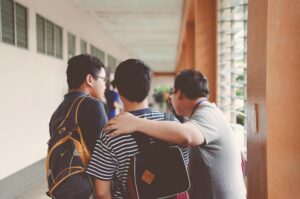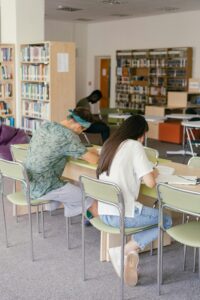This interview refers to the RESPECT project which can be found in our Good Practices section.
GOOD PRACTICE OVERVIEW, CHALLENGES AND OPPORTUNITIES
What were the original goals and objectives of this practice/activity?
The RESPECT project originally aimed to enhance the social and civic competences of 12-14-year-olds by helping them better understand the consequences of their individual and collective actions on themselves, their local and national communities, and the global environment. Additionally, it sought to investigate how various behaviors, such as different consumption choices, affect critical environmental issues. These objectives aimed to foster responsible citizenship and environmental awareness among young learners.
What was found to be particularly useful in achieving this practice objectives (methods, approaches)?
The innovative methods and approaches employed were proved to be particularly useful in achieving the project’s objective. The use of a multiplayer Serious Game was central to the project’s success. This engaging and interactive tool allowed students to collect points by answering questions on topics like food habits, sustainability, and environmental impact. By gamifying the learning experience, it captured students’ attention and encouraged active participation. Moreover, the integration of these activities with school curricula provided a structured and educational context for the project’s goals.
What did students like the most about this practice?
Students expressed particular enthusiasm for the interactive nature of the Serious Game. They enjoyed the competitive element of collecting points and appreciated the real-world relevance of the choices they made within the game. This aspect made the learning experience enjoyable and meaningful for them. Additionally, the opportunity to explore topics related to sustainable practices and social responsibility resonated positively with students, as it allowed them to see the practical implications of their choices.
What were the key problems areas of this practice?
The RESPECT project faced certain key problem areas. These included mainly challenges related to the sustainability of funding beyond the project’s duration. Additionally, logistical complexities arose in managing multi-country collaborations, as coordinating efforts across different educational systems and administrative structures can be intricate.
How can these elements be improved in the future?
Securing sustained funding through various channels, such as grants or partnerships is the key to achieve sustainability of the project. Coordination and communication among participating schools and institutions can help solve distance related problems. Implementing post-project follow-ups and educational reinforcement activities can further contribute to the long-term retention of sustainable behaviors among students.
Is this practice replicable by other teachers in different countries? What factors should be considered while replicating this practice?
Yes, this practice is replicable by other teachers in different countries. However, several factors should be considered when replicating the RESPECT project. Adapting the curriculum and content to align with local contexts and educational standards is essential. Additionally, securing financial resources is crucial for successful implementation. Encouraging cross-cultural cooperation and communication among participating schools and teachers is also important.
What was the most inspiring aspect for you while implementing this practice?
The most inspiring aspect while implementing this practice was witnessing the transformation in students’ attitudes and behaviors. Observing their engagement and enthusiasm as they learned about sustainable practices and realized the potential impact of their choices on the environment and society was truly inspiring. It underlined the significance of education in nurturing responsible and environmentally conscious citizens.







